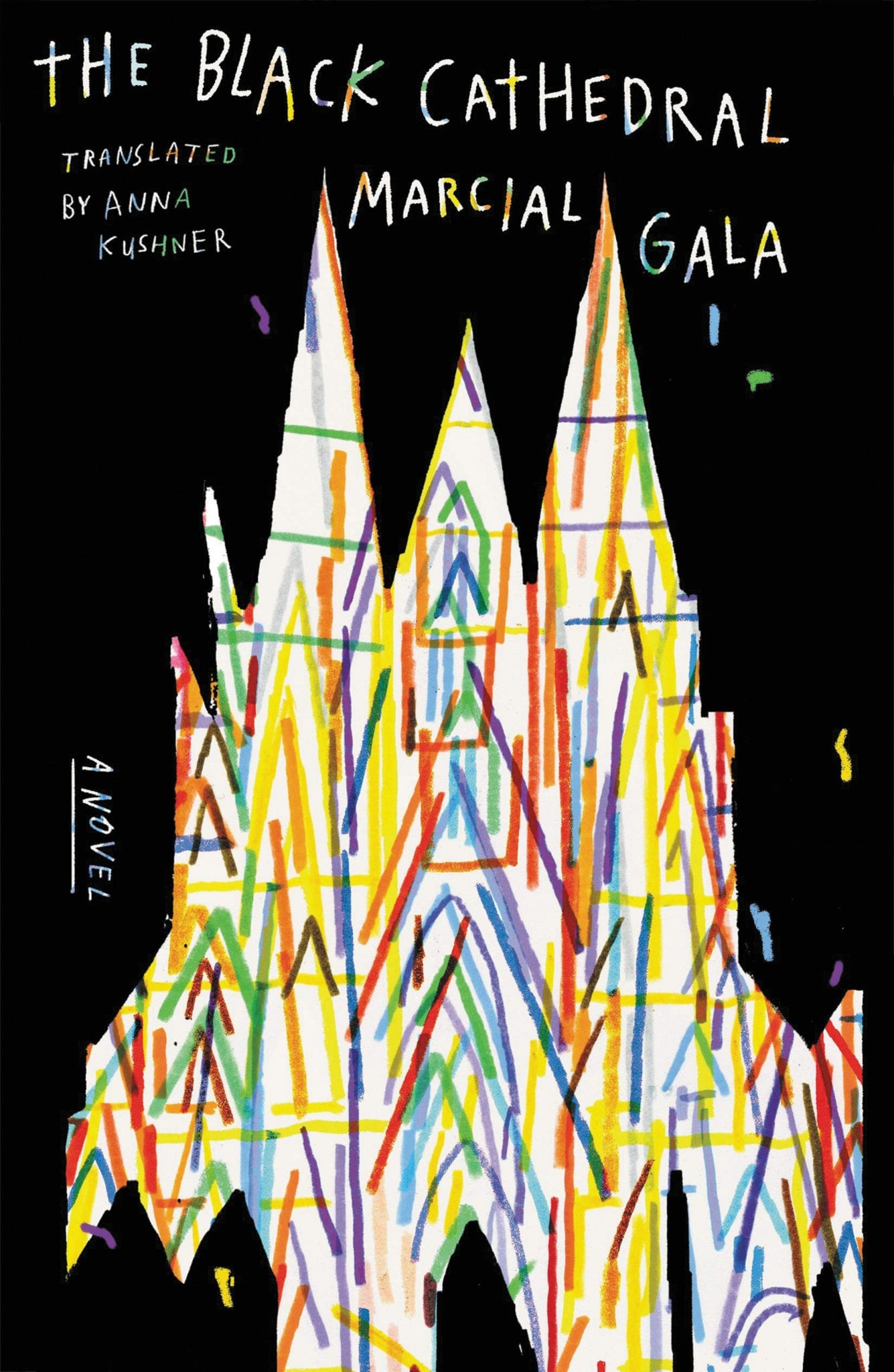Book Club
By Hana Zittel
Published Issue 078, June 2020

The Black Cathedral by Marcial Gala, Translated by Anna Kushner (translation 2020)
Marcial Gala’s first work to be translated into English is a dark and thrilling tour through modern day Cienfuegos, Cuba. Told through a huge cast of characters, some for only a small paragraph, each person feels distinctly alive throughout the novel. The story centers on a doomed attempt to build a gigantic cathedral in the town seen as necessary to support the growing congregation of the Church of the Holy Sacrament of the Resurrected Christ. The family behind the church, the Stuarts, are woven into their new neighborhood to devastating results, as the building project encounters more and more issues.
A darker shift is taken when we follow Gringo, a twisted young man willing to do anything for quick money, lusting after the preacher’s daughter, Johannes. Most shockingly, he collaborates with his lackey, Piggy, to lure and murder eager customers looking for items like a new AC unit or motorcycle before proceeding to sell the bodies as meat to the townspeople. They do, however, take the disturbing and weirdly protective stance of warning those they like not to eat or buy these cuts. Their story is also interlaced further along to introduce the character, Berta, who deals with the haunting of their victims, helping the ghosts tie up their loose ends on earth, creating a web of trouble and pain around this cursed structure.
Gala’s The Black Cathedral was released in 2012 in its original Spanish, providing a snapshot of the shift in the U.S. and Cuban relationship from the Obama administration. Gringo dismisses this turn when he is told in prison, “Listen, one of our guys is president of America,” but thinks, “what did I care, he was not going to pardon me no matter how black he was … I’m not gullible anymore; a black president, so what, who cares?” This story moves fast, but never leaves you behind, but only if readers can rest comfortably in untied ends. Hugely violent and gritty, The Black Cathedral is a dark and thrilling adventure through a complex country.

Postcolonial Love Poem by Natalie Diaz (2020)
The sophomore poetry collection from Natalie Diaz is a follow-up to her award winning, When My Brother Was an Aztec. Each poem in Postcolonial Love Poem unfolds in unexpected ways building on explorations of desire, water, land, language and Native American lives. Though all are captivating, a few poems in the collection truly stand out including, Wolf OR-7, written from the experience of following the movements of a wolf tracked from Oregon to California online, where she mirrors this journey with desire.
Two additional unforgettable poems revolve around water and the Mojave people. In The First Water Is the Body, there is a focus on connection with the Colorado River and language.Diaz writes, “Aha Makav is the true name of our people, given to us by our Creator who loosed the river from the earth and built out living bodies. Translated into English, Aha Makav means the river runs through the middle of our body, the same way it runs through the middle of our land. This is a poor translation, like all translations.” The second, exhibits from The American Water Museum, is a collection of invented pieces from an imagined museum exploring how water has been stolen and weaponized by the government, but how water remains the root of life. Diaz finishes this poem with exhibit 11:
11.
Art of Fact:
Let me tell you a story about water:
Once upon a time there was us.
America’s thirst tried to drink us away.
And here we still are.
Diaz’s collection is a voyage into the beauty of desire and exposes the terror of violence on Indigenous people. It displays the vital need for the preservation of life, culture and language. Diaz won a MacArthur Fellowship in 2018 and has also worked as Director of the Fort Mojave Language Recovery Program to preserve, document, study and teach the Mojave language.
